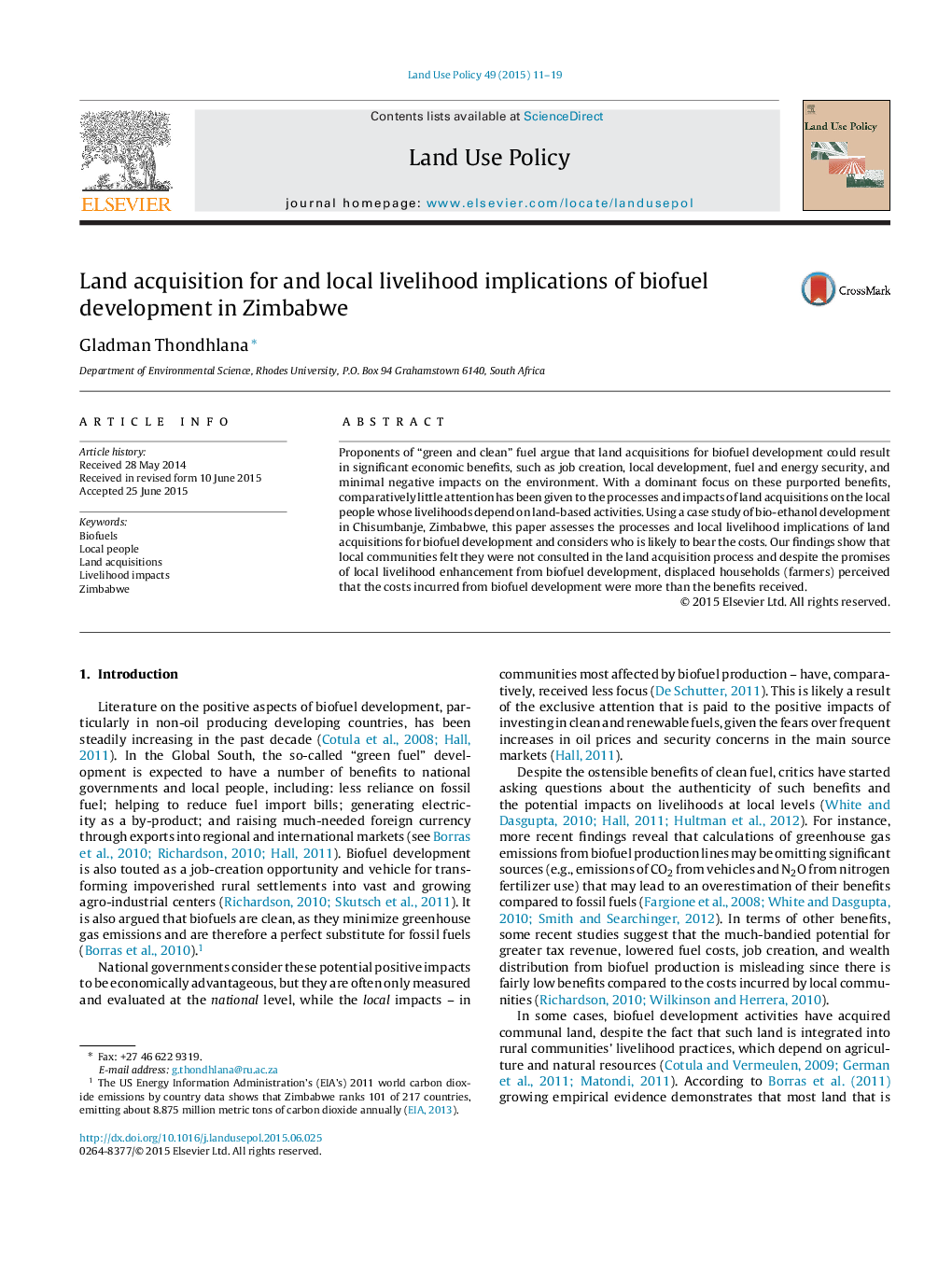| Article ID | Journal | Published Year | Pages | File Type |
|---|---|---|---|---|
| 6547726 | Land Use Policy | 2015 | 9 Pages |
Abstract
Proponents of “green and clean” fuel argue that land acquisitions for biofuel development could result in significant economic benefits, such as job creation, local development, fuel and energy security, and minimal negative impacts on the environment. With a dominant focus on these purported benefits, comparatively little attention has been given to the processes and impacts of land acquisitions on the local people whose livelihoods depend on land-based activities. Using a case study of bio-ethanol development in Chisumbanje, Zimbabwe, this paper assesses the processes and local livelihood implications of land acquisitions for biofuel development and considers who is likely to bear the costs. Our findings show that local communities felt they were not consulted in the land acquisition process and despite the promises of local livelihood enhancement from biofuel development, displaced households (farmers) perceived that the costs incurred from biofuel development were more than the benefits received.
Keywords
Related Topics
Life Sciences
Agricultural and Biological Sciences
Forestry
Authors
Gladman Thondhlana,
